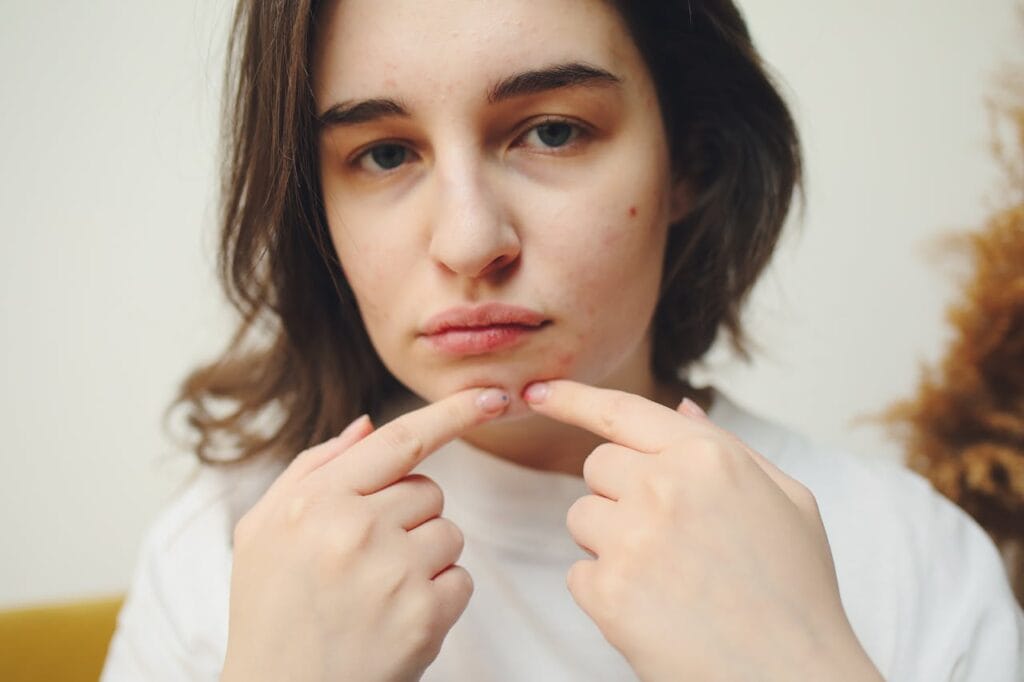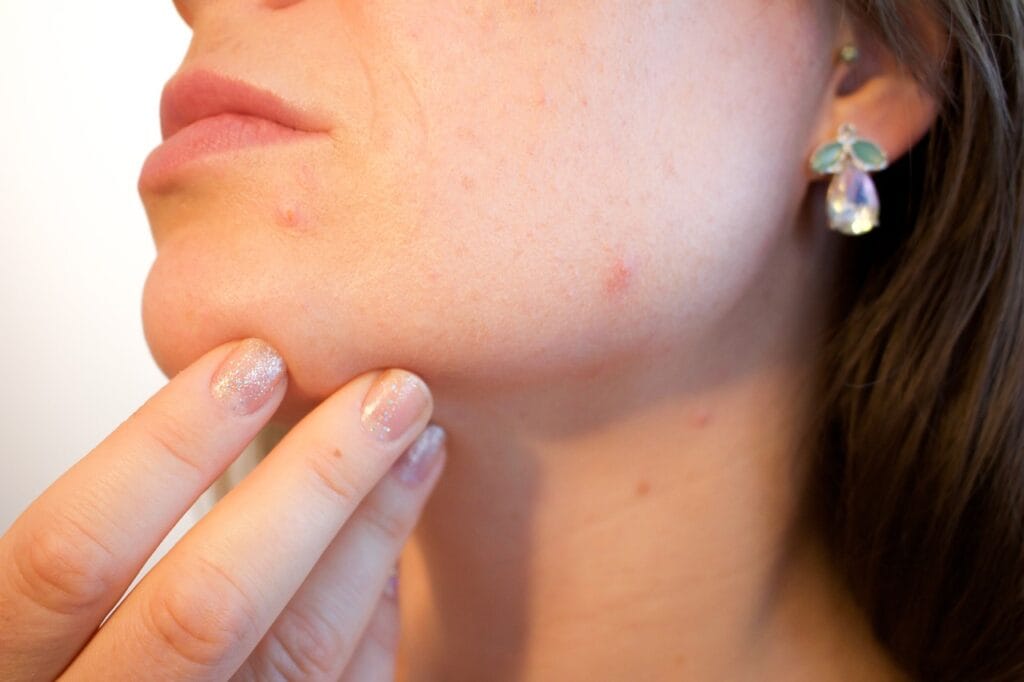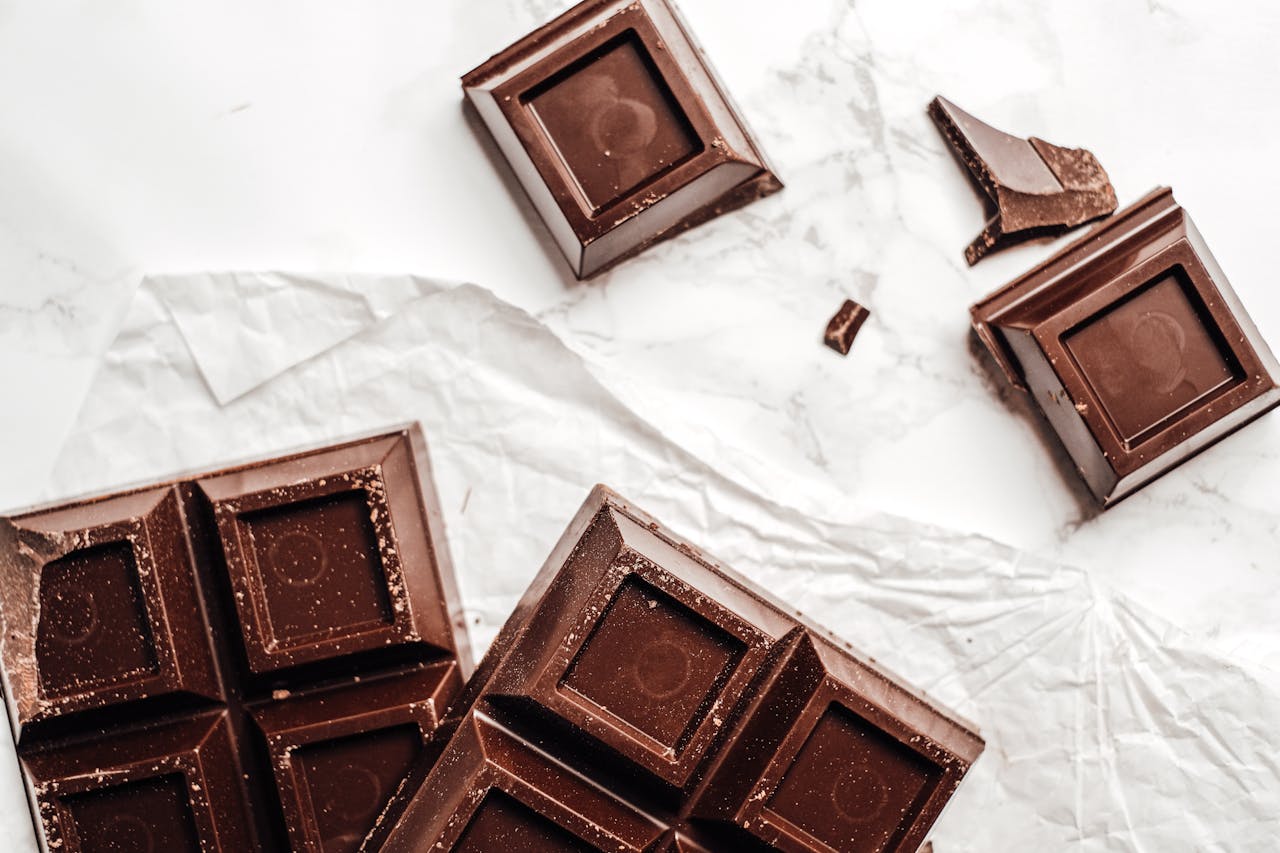There is an opinion that eating sweets can provoke acne. We decided to check whether this is supported by scientific data.
About the influence of diet on the appearance of acne write popular glossy publications, portals about beauty and health, as well as entertainment resources. Advice to avoid chocolate and other sweets for the sake of healthy skin can be found on the websites of companies producing skincare cosmetics. On forums, V blogs and in services Q&A users discuss whether chocolate really causes acne.
Pimples, or acne, is a skin condition in which pores become clogged with a mixture of sebum, dead cells and hair. Normally, the sebaceous glands secrete sebum, which comes out to the surface of the skin through the pores, but with acne this process violated: Skin cells (keratinocytes), sebum and hair stick together inside the pore, preventing it from cleansing. This may occur as a result of problems with exfoliation of keratinocytes and/or excess sebum production. Bacteria begin to actively multiply in clogged follicles, which causes inflammation. Acne happens different types: from blackheads to cysts. Most often, acne affects the skin of the face, but there are sebaceous glands on the surface of the entire body, so acne can occur on the back, chest, shoulders and even genitals. Acne is the most common skin condition disease, and although it is not life-threatening, it can cause psychological problems. It often occurs in adolescence due to hormonal changes; for the same reason, women often notice an exacerbation of acne before and during menstruation. Certain hormones provoke the sebaceous glands to more actively produce sebum, which clogs the pores. However, the same effect can be caused by using too oily cosmetics or frequent contact with oil (for example, when working as a cook in a hot shop). But is acne associated with eating chocolate, fast food and other foods? Judging by polls, the vast majority of acne sufferers think so.
Researchers have been asking the question of the effect of chocolate on skin health since the middle of the last century. In 1969, American dermatologist James Fulton conducted experiment: 65 volunteers who already had moderate acne ate either a bar with a very high concentration of cocoa or one that looked the same but didn't contain any cocoa every day for a month. After this, the experiment was interrupted for three weeks, and then for another month the participants received a different type of chocolate. As a result, Fulton found no significant correlation between chocolate consumption and acne. The sample was quite limited, but even in it there were (in approximately equal numbers) people whose acne either worsened or became less noticeable after eating chocolate with a high cocoa content.

Subsequently connection the relationship between eating chocolate and the development of acne has been tried find and other scientists. Thus, in 2014, American researchers conducted experiment: 14 acne-prone subjects received either 100% cocoa capsules or a placebo for a week. Over the course of a week, scientists monitored their condition three times; at the end of this period, those who received chocolate experienced a worsening of the disease. The study was conducted on a very small sample and over a short period of time, so its results are somewhat questionable. A more extensive experiment was carried out Polish scientists in 2024: 92 participants already suffering from acne were divided into two groups. At the first stage, both groups followed a strict diet, and then participants in one of them began to receive a 50-gram bar of chocolate with 85% cocoa content. After four weeks, participants in this group had more severe acne. However, scientists note that the mechanism of cocoa’s effect on acne is unclear.
Fulton and many of the researchers who followed in his footsteps studied how cocoa, rather than sweets in general, affected acne. At the same time, the milk chocolate bar is almost half consists of from sugar, and there is much more extensive scientific work on its connection with acne. So, in 2020, French scientists published the results of a study that lasted almost ten years and involved more than 24,000 people. Participants filled out an online questionnaire where, among other things, they had to indicate whether they had ever suffered from acne and also talk about their diet. As a result, scientists have identified a significant relationship between this disease and the consumption of sweets. The scientists noted that further research is needed to clarify exactly how diet affects acne.
Italian scientists published in 2021 systematic review 53 scientific papers published over the previous 11 years and devoted to the effect of diet on the development of acne. According to the studies included in the review, factors that cause or worsen acne include foods with a high glycemic index and/or load, including chocolate and other sweets.

Glycemic index (GI) is an indicator that reflects the rate at which certain carbohydrate-containing foods increase blood sugar levels. Foods with a high glycemic index include bread, white rice, sweets, potatoes, etc. Glycemic load (GN) is a more accurate indicator that also takes into account the amount of glucose in one serving. For example, watermelon has a high GI (80 on a scale of 100), but a low GL (for watermelon to have any serious effect on sugar levels, you need to eat quite a lot of it). These indicators are not only important when creating a diet for people with diabetes or trying to lose weight, but also affect the development of acne. The fact is that increased levels of sugar and insulin in the blood, which occur after eating foods with high GI or GL, increase the level of insulin-like growth factor-1 (IGF-1), a hormone that functions similar to insulin. It, in turn, causes rapid proliferation of keratinocytes and an increase in the level of androgen - a male sex hormone that promotes the production of sebum. It is these factors that stimulate the appearance of acne.
Experts from the American Dermatological Association also adhere to opinions that a diet rich in high GI foods provokes acne. Research also confirms the inverse correlation: people who switched to a low-GI diet to lose weight also noticed an improvement in their skin condition. So, apparently, those who suffer from acne really should reduce the share of sweets in their diet.
However, the studies mentioned in this discussion have their limitations. Those that were experimental in nature took place on relatively small samples and over relatively short periods of time. Studies that covered large cohorts of participants and long periods of time were based on questionnaires and self-observation diaries, and the accuracy of such data is always far from perfect. There are quite a few factors that can provoke an exacerbation of acne - from lack of sleep and stress to hormonal changes and/or disorders that the respondent may not even know about. Research shows a certain connection, but it is not a fact that this connection is cause-and-effect. Almost all scientists agree on one thing: in order to answer with a high degree of confidence the questions of which products and to what extent influence the development or severity of acne, additional research is needed.
Thus, judging by the available data, chocolate is indeed capable of triggering the appearance or development of acne. The same is true for other products with a high glycemic index, that is, with fast carbohydrates in the composition, including sweets and flour products - due to the high GI, acne can worsen. There is still no consensus in the scientific community regarding the effect of cocoa on skin health, since the mechanism of its potential effect is unclear, and the design of the experiments does not always allow us to obtain an unambiguous answer to this question.
Cover photo: pexels.com
Read on the topic:
- WebMD. Foods for Healthy, Supple Skin
- Is it true that the areas of rashes on the face can be used to diagnose problems with certain internal organs?
- Is it true that decorative cosmetics spoil the skin and cause inflammation?
- Is it true that chocolate stimulates brain function?
If you find a spelling or grammatical error, please let us know by highlighting the error text and clicking Ctrl+Enter.






